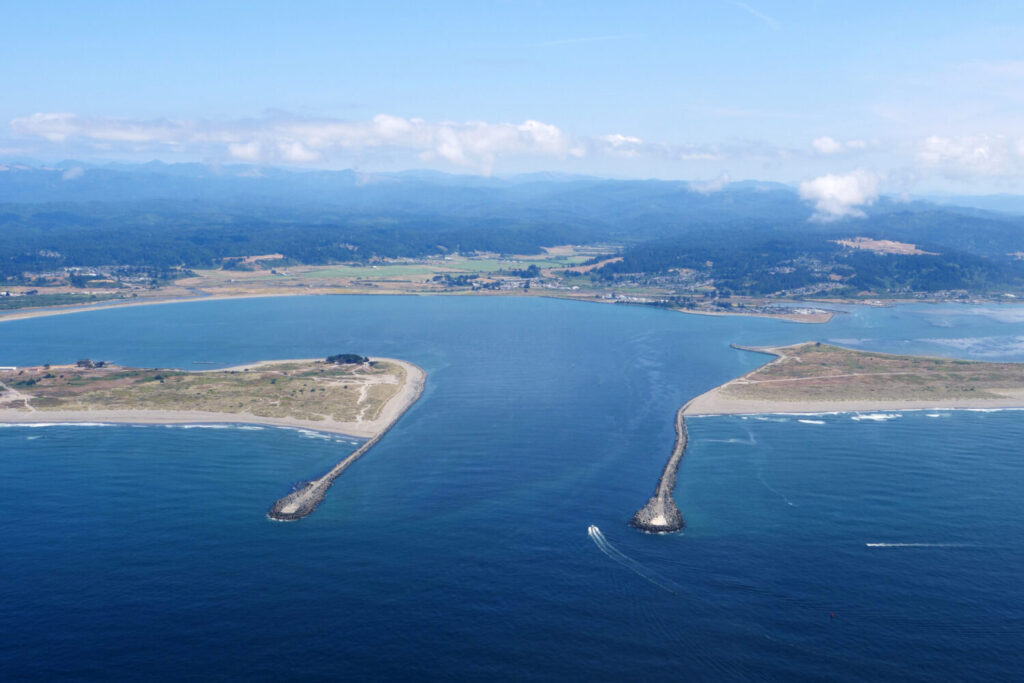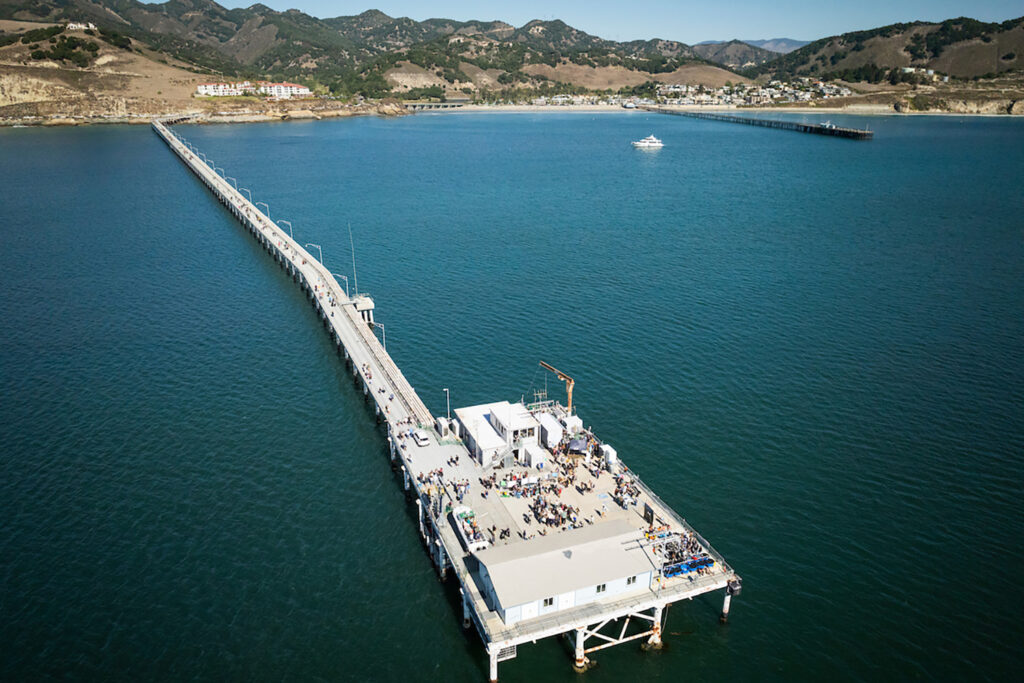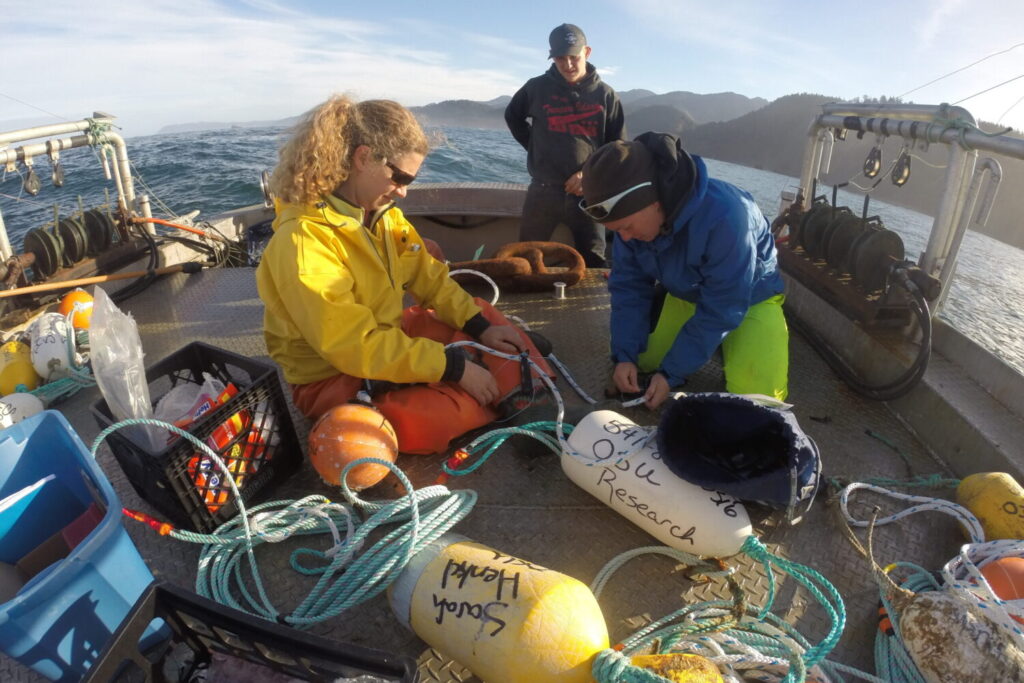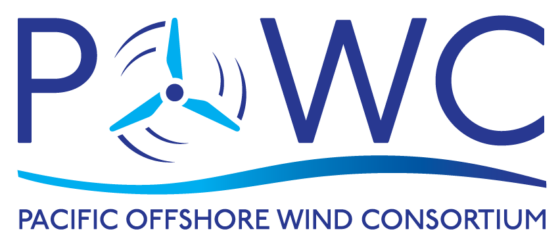Welcome to POWC
The Pacific Offshore Wind Consortium (POWC) supports universities, host communities, and Tribal Nations to share resources, co-develop best practices, and design relevant and timely research programs on topics related to offshore wind. Our efforts are geared to reflect the dynamic nature of the coastal and marine environment as well as the diversity of community perspectives.
POWC activities advance (i) research and innovation, (ii) community and Tribal engagement and knowledge exchange, and (iii) university-level workforce education and professional development.
POWC is a collaboration between:
- Schatz Energy Research Center at Cal Poly Humboldt
- Center for Coastal Marine Sciences (CCMS) at Cal Poly San Luis Obispo
- Pacific Marine Energy Center (PMEC) at Oregon State University
Expertise from three universities

The Schatz Energy Research Center is located in the Humboldt Bay Area, which is preparing to house one of only two feasible staging and integration ports in California for offshore wind deployment. Humboldt is also home to two wind lease areas, which begin 20 miles offshore and span 207 square miles.
Since 2018, the Schatz Center has published over 30 reports in an effort to understand the feasibility of offshore wind, and to identify critical environmental and community needs that would be associated with its development. The Schatz Center works in close partnership with Tribal Nations, county services, and state government to design innovative solutions for clean power generation and energy resilience.

Cal Poly San Luis Obispo is home to the Center for Coastal Marine Sciences, which has a history of interdisciplinary, applied research to address a range of management issues for the Central Coast. Cal Poly San Luis Obispo works collaboratively with a variety of interest groups in the Morro Bay Area to promote and design effective environmental monitoring for offshore wind. The Morro Bay Wind Energy Area covers 376 square miles across three wind lease areas.
Environmental research for offshore wind includes baseline surveys, behavioral assessments, data integration and modeling, monitoring for protected species, planned mitigation, pathways for adaptive management, and transfer of lessons learned.

The Pacific Marine Energy Center (PMEC) at Oregon State University brings over 15 years of experience investigating the technical, environmental, and social dimensions of offshore energy, and expanding scientific understanding, engaging stakeholders, and educating students.
The Hatfield Marine Science Center at OSU serves as a hub for research on potential ecological effects of offshore renewable energy, while the PacWave test site demonstrates in-water activities and potential issues associated with offshore energy projects, such as seabed surveys, cable laying, construction and operational noise, and electromagnetic fields (EMF). PMEC also conducts significant hydrodynamic and aerodynamic studies of offshore wind platforms at the Hinsdale Wave Research Laboratory.
Advisory Committee
The POWC supports interdisciplinary discussion across academia, industry, agencies, community organizations, and Tribal Nations. This breadth is reflected in the consortium’s Advisory Committee. As a non-governing committee, the advisory group provides guidance and advances collaboration and understanding in the offshore wind space. Learn more about our advisory team…
Contacts
- For more information on the POWC and to receive updates, please contact info@powc.us.
- For questions specific to each center, please reach out to any of the core team members directly.
